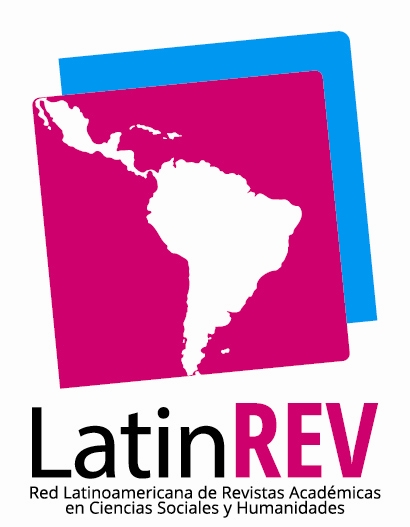Metacognitive processes in distance education
Keywords:
distance education, metacognitive processes, learningAbstract
This work was performed under the project: "Distance Education. Teaching and learning Network" No. 22/H218 , National University of San Luis, Argentina. The objective is the same, emphasizing the importance of the exercise of metacognitive processes in distance education at higher levels. Knowing the cognitive activity may exert control over it and enhance effectiveness of the processes that take place. This allows better control performance, is called self-regulation. In contexts of university teaching, it is frequently observed that the only thing that changes, usually with curricular reforms is the organization of the courses, the names of the courses and their credit hours. However, it is still considered a "class" as the only area of teacher-student contact in which content and planned activities take place, as it is traditionally conceived in basic education, and prioritizing the learning hetero depositing so the responsibility in teaching, giving the student a passive place, or that it retains the structure of interaction and time management.
Downloads
References
Antonijevic, N. y Chadwick, C. (1981/1982). “Estrategias Cognitivas y Metacognición”, en Revista de Tecnología Educativa, 7(4), 307- 321.
Bigge, M. L. y Hunt, M. P. (1979). (9° ed.). Bases Psicológicas de la Educación. Mexico: Editorial Trillas.
Bornas, X. (1994). La autonomía personal en la infancia. Estrategias cognitivas y pautas para su desarrollo. España: Siglo XXI.
Brown, A. (1987). "Metacognition, executive control, self-regulation and other mysterious mechanisms", en Weinert, E. F. y Kluwe, R. H. (eds.). Metacognition, motivation and understanding Hillsdale, 65-116. New Jork: Erlbaum.
Burón, J. (1996). Enseñar a aprender. Introducción a la metacognición. Bilbao: Mensajero.
Castañeda, S. (2004). Educación, aprendizaje y cognición. Teoría en la práctica. México: Ed Manual Moderno.
Chadwick, C. (1985). Estrategias Cognitivas, Metacognición y el uso de Microcomputadores en la Educación. Planiuc, 4, 7.
Del Maestro, C. (2003). El aprendizaje estratégico en la educación a distancia. Fondo Editorial PUCP. Serie: Cuadernos de educación. Lima, Perú.
Díaz Barriga, F. y Hernández, G. (2002). Estrategias docentes para un aprendizaje significativo, una interpretación constructivista. MC GRAW-HILL. Mexico: Interamericana Editores.
Flavell, J. (1971). First discussants comments: Whats is memory development the development of? Human Development, 14.
Flavell, J. (1976). “Metacognitive aspects of problem solving” en Resnik, L. B. The Nature of Intelligence. Hillsdale, L.E.A.
Flavell, J. (1987). Speculation about the nature and development of metacognition. En Weinert, E. y Kluwe, R. (Eds.) Metacogntion, motivation and understanding. Hillsdale.
Maclure, S. y Davies, P. (1994). Aprender a pensar, pensar en aprender. Barcelona: Editorial Gedisa.
Mateos, M. (2001). Metacognición y educación. Buenos Aires: Aique.
Mayor, J.; Suengas, A. y Gonzales Marques, J. (1993). Estrategias metacognitivas. Madrid: Editorial Síntesis.
Mayor, J. y otros (1995). Estrategias metacognitivas: aprender a aprender y aprender a pensar. Madrid: Editorial Síntesis.
Monereo, C. y Castelló, M. (1997). Las Estrategias de aprendizaje. Cómo incorporarlas a la práctica educativa. Barcelona: Edebé.
Monereo, C. y Barbera, E. (2000). “Diseño instruccional de las estrategias de aprendizaje en entornos educativos no formales”, en Monereo (et al.) Estrategias de aprendizaje. Madrid: Visor/Ediciones de la Universidad Oberta de Catalunya.
Navarro, E. (2000). “Alfabetización Emergente y Metacognición”, en Revista Signos, 33.
Nickerson, R.; Perkins, D. y Smith, E. (1985). The teaching of the thinking. Barcelona: Paidós.
Ontoria, A. y otros (2000). Potenciar la capacidad de aprender y pensar. Madrid: Narcea.
Pozo, I. y Monereo, C. (1999). El aprendizaje estratégico. Enseñar a aprender desde el currículo. España: Aula XXI. Santillana.
Romero, L. F. y otros (2002). Habilidades metacognitivas y entorno educativo. Universidad tecnológica de Pereira. Colombia: Ed Papiro.
Rondón, M. (2007). “Modelos Virtuales en las Instituciones de Educación Superior Colombianas", Informe Viceministerio de Educación Superior. Recuperado de: http://www.colombiaaprende.edu.co/html/mediateca/1607/articles-126604_archivo.pdf
Skinner, B. F. (1957). Verbal Behavior, Acton, Massachusetts: Copley Publishing Grou.
Downloads
Published
Issue
Section
ARK
License
Copyright (c) 2014 María Cecilia Bellina

This work is licensed under a Creative Commons Attribution 4.0 International License.






